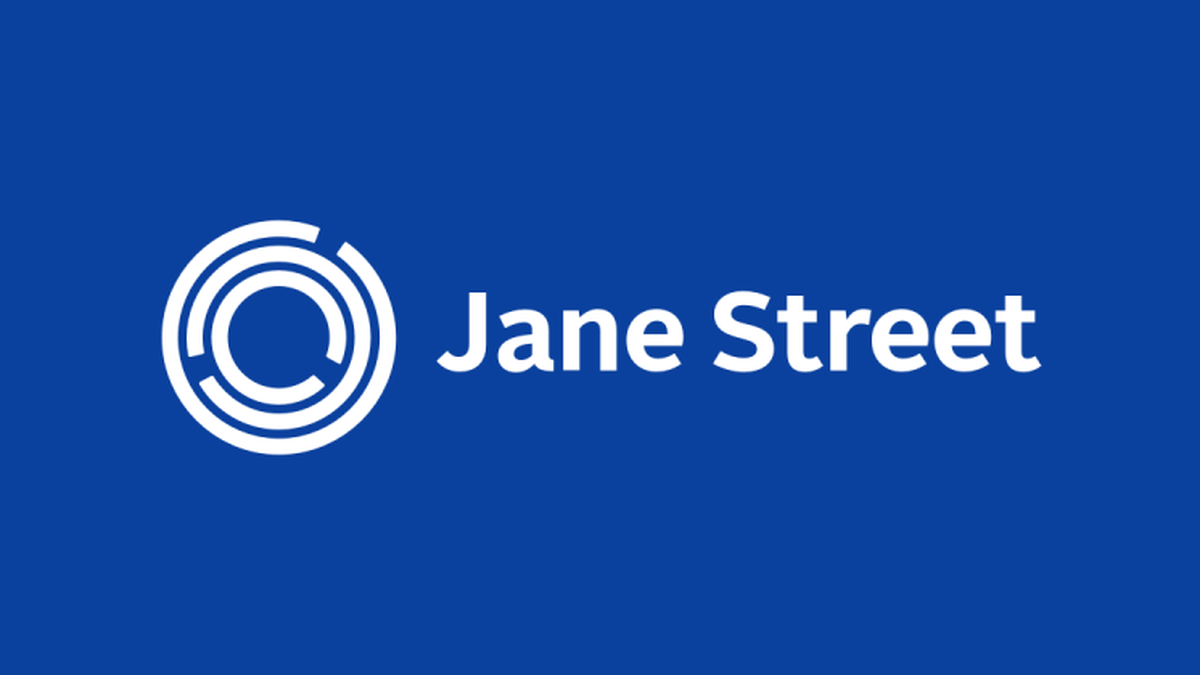- July 4, 2025
Explained: What Is Jane Street, How It Earned Rs 36,500 Cr From F&O Trades In India, Why Has Sebi Banned It?

Last Updated:
Jane Street Group Banned: Sebi has banned US trading firm Jane Street from market after a probe into alleged manipulation of index derivatives, particularly Bank Nifty options.
SEBI noted that the reversal trades in the cash market were conducted through Jane Street’s India-based entity, JSI Investments.
Jane Street Group Banned: In a major move, the Securities and Exchange Board of India (Sebi) has barred the Jane Street Group, a global proprietary trading firm, from participating in Indian securities markets. The regulatory action comes after an extensive investigation into alleged manipulation of the Indian stock market through index derivatives, particularly Bank Nifty options, which earned the company massive profits of over Rs 36,500 crore between January 2023 and March 2025.
What Is Jane Street?
Founded in 2000, Jane Street is a US-based leading global trading firm that operates as a proprietary trading company. Unlike hedge funds, Jane Street trades using its own capital. It has operations across the US, Europe, and Asia, specialising in high-frequency trading and algorithmic strategies. The firm has over 2,600 employees and is known for its sophisticated quantitative models and automated market-making systems.
In India, it operated through four firms — JSI Investments Pvt Ltd, JSI2 Investments Pvt Ltd, Jane Street Singapore Pte Ltd, and Jane Street Asia Trading Ltd.
How Did Jane Street Earn Rs 36,500 Crore By Allegedly Tricking Indian Stock Markets?
Between January 2023 and March 2025, Jane Street entities made over Rs 43,289 crore in profits from index options, particularly Bank Nifty (BANKNIFTY) using various strategies that allegedly manipulated markets. These profits were partly offset by losses in other segments like stock futures and cash equity, resulting in a net gain of Rs 36,502 crore.
In a 105-page order, Sebi highlighted two key manipulative strategies — ‘Intraday Index Manipulation Strategy’ and ‘Extended Marking the Close Strategy’.
1. Intraday Index Manipulation Strategy
Citing an example of January 17, 2024, when Jane Street made its biggest single-day profit of Rs 734.93 crore, Sebi said Jane Street aggressively bought stocks in the Bank Nifty index (like ICICI Bank, Axis Bank, HDFC Bank) in the cash and futures markets in the morning session. This artificially pushed the index higher. Simultaneously, it built large short positions in Bank Nifty options by selling call options at inflated premiums, and buying put options at lower prices.
Later in the day, Jane Street sold off those same stocks, causing the index to drop. This boosted the value of their put options and rendered call options worthless, ensuring massive profits.
2. Extended Marking the Close Strategy
On certain expiry days, Jane Street allegedly manipulated prices in the last two hours or near the market close, a crucial window for settling F&O contracts.
Sebi noted the following:
- A staggering Rs 17,319 crore was earned from BANKNIFTY options alone.
- Profits were disproportionately high on expiry days, when options contracts expire and price influence can be most potent.
- Trades were concentrated in short bursts, often aligned with expiry timings.
“JS Group made a total profit of Rs 36,502.12 crores across all segments,” Sebi said in the order.
What Are the Allegations?
SEBI has accused Jane Street of:
- Violating the Prohibition of Fraudulent and Unfair Trade Practices (PFUTP) Regulations
- Misleading market participants, especially retail traders who rely on index movements
- Acting in concert across multiple entities to distort market dynamics
- Disregarding caution letters issued by the NSE in February 2025 warning them to restrain their trading behaviour.
What Action Has SEBI Taken?
Sebi has issued interim orders under Sections 11(1), 11(4), 11B(1), and 11D of the SEBI Act. The market regulator has:
- Banned the Jane Street entities from trading or accessing Indian markets,
- Frozen an amount of Rs 4,843 crore, and
- Given the group 21 days to respond or request a hearing.
What Has Jane Street Said?
While the Sebi order includes Jane Street’s written submissions made during the investigation, the firm has not publicly admitted wrongdoing. It is expected to appeal and defend its strategies as legitimate arbitrage and hedging.
However, in an emailed response to Reuters, Jane Street disputed the Sebi findings and said it will further engage with the regulator.
“Jane Street is committed to operating in compliance with all regulations in the regions we operate around the world… Jane Street disputes the findings of the SEBI interim order and will further engage with the regulator,” it added.
What’s the Broader Impact?
This is one of Sebi’s biggest crackdowns on a foreign trading firm. The case highlights the vulnerability of Indian derivatives markets to manipulation during expiry. It may lead to stricter F&O rules and tighter scrutiny of high-frequency and algorithmic trading.

Haris is Deputy News Editor (Business) at news18.com. He writes on various issues related to markets, economy and companies. Having a decade of experience in financial journalism, Haris has been previously asso…Read More
Haris is Deputy News Editor (Business) at news18.com. He writes on various issues related to markets, economy and companies. Having a decade of experience in financial journalism, Haris has been previously asso… Read More
- First Published:





